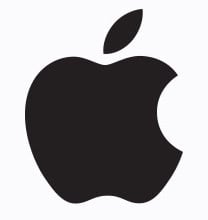

Someone you know that has the product… Or ProjectFarm on YouTube.


Someone you know that has the product… Or ProjectFarm on YouTube.


Same boat. I’m currently a software engineer. Colleagues have joked in the past that I’ll make my way as a manager or something, but the reality is that I’m more than fine remaining in this position the rest of my career. I’m fortunate enough that I’m fine with the money I make. I’m fine with my responsibilities, including the flexibility I have with my time. Not to mention that I enjoy doing actual development type work.
It would have to be a significant amount of money for me to even think about accepting any management roles.
I would entertain a lead type role (lead software engineer or principal software engineer, etc), but management personally is off the table.
It really depends on a handful of things. For context, I’m in northern Ontario.
I’m an introvert, and I spend most of my time alone. I thrive by myself, so being alone (for a while) won’t be an issue. However, I would bet over time I might lose my mind with zero presence of people.
Farming is possible, but the area isn’t great. Most of my food would be from hunting and fishing, which I have experience with already.
I’m also surrounded by lots of fresh water, so that is not a concern. My house is heated by a mix of propane and wood, so heating in the winter is not an issue.
Winter’s will be tough, because roads won’t be plowed. Eventually fuel will go bad and I won’t have any running vehicle, including snowmobiles. So I would likely be walking with snow shoes, or staying inside. This would then require me to stock up all my food, which is its own issue.
Electrical grid would likely go down. If I want to preserve my food using freezers before the winter, I will need electricity, which would require me.installing some sort of solar system. I’m not knowledgeable on the subject, which would require me to go physically searching for books or written documentation.
Electricity is paramount for any future long distance travel, as combustion engines would not be operable, and electric vehicles would replace them.
Moving south to a warmer climate where hunting/fishing is still possible, and surrounded by fresh water would probably be best.
Long story short, loneliness would likely kill me before anything else does.


I was heavy into skateboarding as a kid, and I was interested in making some skateboarding media website with images and videos. I had initially began with wix, because I had no idea programming was a thing (I barely used technology, or even a phone). I messed around with it for a while, and then learned that I could make websites with just a simple html file… And the rest was history. Ended up getting into PHP, then game development with Java, etc.


Staying on the SQL theme… The company I work for has a fairly old (~20 years) system. There’s a feature for users and site admins to export massive amounts of data, with the option to export data from when the system was first released. Purely CSV or XML data formats. On large datasets, the time for export would vary from 10-20+ hours, and would frequently timeout, forcing you to split exports into multiple timeframes and manually merging them into a single file. The solution? Indexes! Indexes were non-existent. After adding them, export times have dropped to ~10-15 minutes, which is a rather insane performance increase, especially since a single export is accepted per account at a time.


Yeah, same here. I spend all day at a computer, last thing I want to do is spend more time at a computer. I’ve also spent more time working on my own vehicle’s, and just generally being outside more often.
One thing that I do enjoy from time to time is graphics/game programming. Nothing really ever results from any of my projects, but it is something I enjoy, as i don’t do graphics programming at my job… It’s usually systems/web development, so the difference in the type of projects I choose to do as hobby programming has helped for me.
Sorry, I meant 12hr is standard (agreeing with Nemo’s original comment).
It’s standard in Canada as well. I prefer 24hr personally. There were a couple times where I’ve napped in the evening, and woke up thinking I was late for work in the morning. Not fun. 24hr clock solves that. Plus it just makes more sense to me than 12hr clocks.
The college I went to taught COBOL in 2 mainframe courses, and as far as I’m aware, they still do.
It was either you like it, or you absolutely despise it. It wasn’t all the difficult, but it is very different than your standard java, C#, C++, etc, so the syntax really throws people off.
Yep. I ordered the blue pro max and it’s supposedly arriving mid October. I also live in the middle of nowhere, so it was expected… But now hearing someone else is mid October, I’m kinda annoyed.


I’m still not seeing any reason why Apple should have an advantage here. Any Android OEM should be able to walk up and make a great hardware pairing with the open source Android OS. But they don’t. Instead they rely on Moore’s Law to keep them afloat.
Couple things that should be mentioned… First, iOS runs apps natively. Additionally, Apple uses Swift as their language for apps, which surprise surprise, was built by them for their products. Android has some overhead with JVM (virtual machine). Unsurprisingly, this means it may take apps slightly longer to open (though not always the case), and use a bit more memory in the process.
Second is background processes. Android tends to have additional processes (which depending on the skin you use will be different) for widgets, backgrounds, app services, god knows what else (depending on the apps/skins used). Apple is fairly conservative, meaning less memory usage.
I have an iPhone 12 Pro (6gb of RAM), and a Galaxy s10 (8gb of RAM). iOS (according to some system status app) is sitting at about 50% (roughly 3gb) with only Memmy (and the status app) open. Android is sitting at just under 50% (about 3.5gb) with Jerboa and the settings app open. I’ve also taken a look at my Galaxy Tab S6 Lite which has 4gb of RAM, and with Twitch open in split mode, it’s at roughly 65% (2.5gb).
So, not surprising that modern Android actually doesn’t use all that much memory compared to iOS. Would I still say iOS is far more optimized than Android? Absolutely. But that doesn’t mean that Google and manufacturers of Android devices don’t care about performance. Millions of people wouldn’t be using their devices otherwise.
As you mentioned though, that doesn’t stop random companies from building shitty products. Horrible performing devices like tablets, budget phones and tv boxes exist. Just the nature of open source.
Also, almost every device user, be it Android or Apple cares about specs. Camera, display, size, etc… RAM just isn’t a thing Apple users need to worry about because memory was always managed so incredibly well, while Android in the last did have memory issues.
This whole debate of iOS and Android doesn’t mean all that much anymore in the flagship space because both perform very well.


Ah, I misunderstood.
Device manufactures certainly can optimize certain things for their device. Samsung for example has OneUI, which is Samsungs responsibility to optimize. However, just like Google can’t control how manufacturers optimize their OS, Samsung can’t force Google to optimize it for them.
I’d imagine a good amount of manufacturers would rather have Google optimize the OS rather than fund a whole team to do what Google should be doing anyways. Then this goes back to what I said where optimization is difficult due to the wide range in hardware.
My mention of alternate OS’s still apply, as they do serve a purpose in trying to optimize and debloat Android. However they also don’t just target a specific manufacturer, but a wide range of devices.
In other words, Android has matured a LOT since it’s infancy, so it runs quite well on most high end devices. Ignoring specs, you likely won’t tell much of a difference (if at all) when actually using an Apple or high end Android device.


It’s not that they don’t want to, it’s that it doesn’t make sense. Android (Google) does optimize for a broad range of hardware, but it would be a waste of time for them to optimize for specific devices.
Their pixel lineup runs stock Android. That’s what Google offers, so that’s what you’ll get.
However, companies like Samsung do ship their devices with custom software, which allows them to optimize it to their hardware (though I’m not sure how much). Then you have the option to install (if the software supports the hardware) an alternative OS (Calyx, Graphene, Lineage, etc). This can remove bloatware and allows the option to de-google your device… Resulting in a better performing device.
Apple is lucky in the sense that they own their own hardware and software. Android owns the software, not the hardware.


The benefit of iOS is it’s optimization towards the hardware it runs on. Android isn’t just Samsung. You have Xiaomi, Samsung, Pixel, OnePlus, Asus, Huawei, Oppo… And the list goes on. All these variations in hardware (flagship and lower end devices) that Android has to support makes optimization far more difficult, making high RAM capacities such a desirable feature (although, not the only reason for why some devices struggle).
Software has matured so much that these concerns of iOS vs Android performance does not matter all that much anymore. Each function great in their own way.


Likely not. Seems to just be a state management issue. When in a community, and you upvote a post while viewing it, then return back to the community page, your vote doesn’t reflect. But if you refresh, then it shows it.
Looks like Memmy just doesn’t update the post properly when returning. Coincidentally, the other app you used may have the same issue.


I had painted an old Lenovo desktop blue to use as a home server. Named it blueberry. Recently upgraded servers using a black case. Named it blackberry.


Would you happen to know the reason why in certain cases where the vehicles fuel tank is not actually full, but the nozzle shuts off multiple times?
Is this another maintenance issue with the nozzles shutoff mechanism?
I tried to rephrase his question in my head, and I ended up with “Why do not teeth degenerate.”
I need sleep.